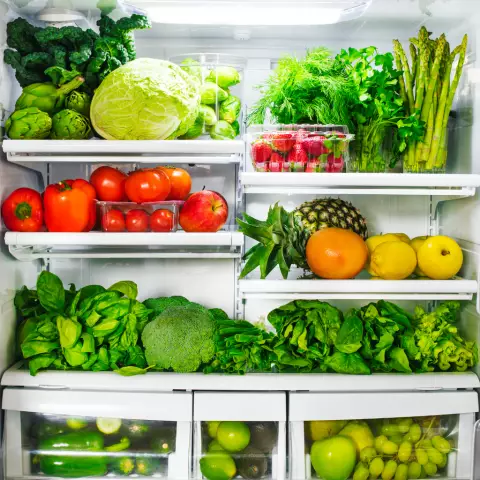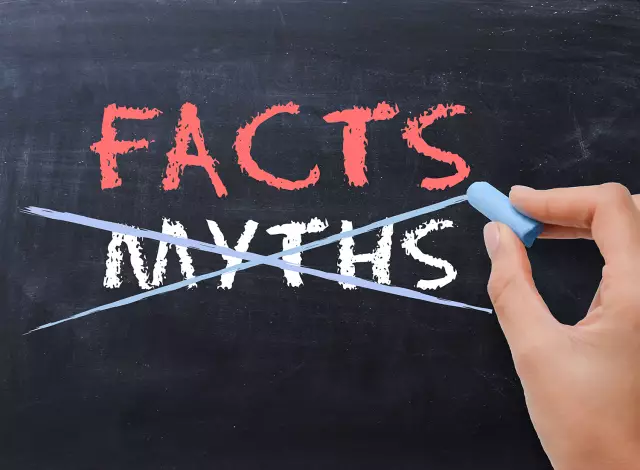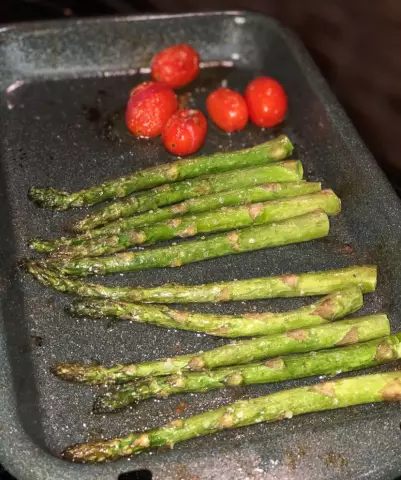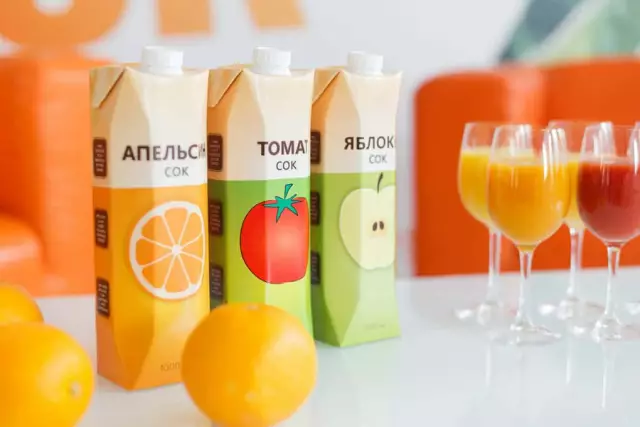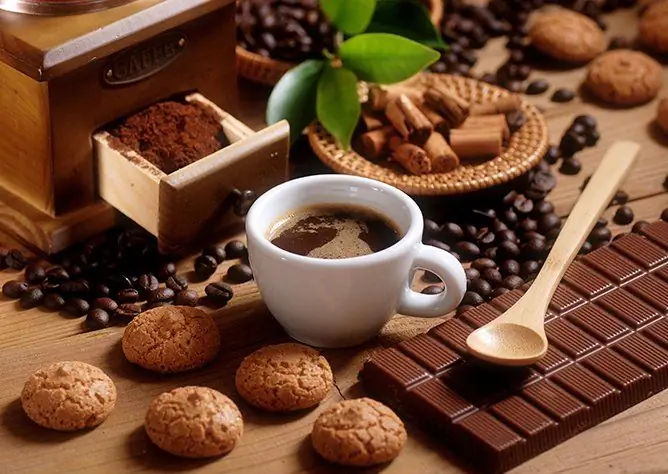- Author Rachel Wainwright wainwright@abchealthonline.com.
- Public 2023-12-15 07:39.
- Last modified 2025-11-02 20:14.
9 foods that shouldn't be refrigerated
There is an opinion that food is stored better at low temperatures, and accordingly the refrigerator is considered the most suitable place for this. In most cases, this approach is correct, but for some products, low temperatures are the main cause of premature spoilage. In the refrigerating chamber, they quickly rot, mold appears on them and all this is accompanied by the loss of vitamins and taste. What kind of food to remove from the refrigerator shelves to keep it longer? Let's consider some of them.
Bread
It is an empirically proven fact: bread and bakery products lose freshness at a temperature of 0-2 ºС several times faster than at room temperature (18-20 ºС). This is explained by the intensive process of moisture evaporation, due to which such products in the upper chambers of the refrigerator instantly stale and dry. Optimal conditions for bread are in a tightly closed bread bin with a handful of salt that protects against mold. If you need to store baked goods for a long time, it is better to put them in the freezer, after wrapping them in a plastic bag - then they retain their properties for up to 4-6 months. Bread can be reheated in the microwave or oven before eating. You just need to remember that thawed bread turns stale faster than freshly baked bread.

Source: depositphotos.com
Tropical fruits
The vast majority of exotic fruits do not tolerate low temperatures, reacting to them with rapid rotting with the release of poisonous gases. Bananas, kiwi, lemons, tangerines are best stored at room temperature, wrapped not in a plastic bag, but in paper, so that they can "breathe". High humidity (in or out of the refrigerator) can lead to the formation of dark spots on the surface of the fruit, mold and contribute to their premature spoilage, therefore, it is better not to wash the fruit before storing it, only immediately before use.

Source: depositphotos.com
Apples, pears and others
Apples, pears, peaches, plums, apricots and nectarines are saturated with ethylene - a gas that ripens not only themselves, but also other fruits and vegetables stored with them. Sometimes this property of apples is used to accelerate the ripening of other fruits (for example, bananas, tomatoes, oranges) by placing them with a broken shell in a refrigerator in the immediate vicinity of the latter. In all other cases, keeping apples, etc. on the same shelf with other vegetables and fruits is not worth it.

Source: depositphotos.com
Fresh vegetables
The vast majority of vegetables retain their freshness longer, not in the refrigerator, but in a cool, ventilated place, protected from sunlight, such as a cellar. So, the starch contained in potatoes, at temperatures from + 7 ° C and below, begins to turn into sugar, which changes both the consistency of the tuber and the taste.
Other hard vegetables are also not suitable for storage in the refrigerator: carrots, beets, radishes. In conditions of high humidity, they quickly germinate and grow moldy. Vegetables with a high water content (cucumbers, tomatoes, eggplants, etc.) in a poorly ventilated place begin to become covered with dark spots and rot. To prevent premature spoilage, it is best to store them at room temperature in a small basket.

Source: depositphotos.com
Garlic and onion
Low temperatures are also not good for vegetables such as garlic and onions. The main disadvantage of the refrigerating chamber is the lack of air circulation necessary for high-quality food storage. In a poorly ventilated place, the structure of onions and garlic is quickly disrupted, they become softer and lose their beneficial properties.
When placing odorous vegetables in the refrigerator, especially in cut form, it is worth remembering that a pungent smell, penetrating into other products, significantly spoils their taste. Optimal conditions for garlic and onions are a dark, dry, often ventilated place with a temperature of 18-20 ° C. For storage, you can use linen bags, boxes with holes, but it is better to weave these vegetables into braids and hang them on the walls.

Source: depositphotos.com
Greens
It makes no sense to store basil, parsley, dill and other herbs in the refrigerator for a long time - plants quickly lose moisture from thin leaves, which leads to their wilting, loss of vitamins and taste. If there is a need to ensure their preservation longer, put the greens with petioles in a glass of water, like a bouquet of flowers, and keep in a dark place. However, this measure is also not optimal: for long-term storage of green herbs, it is more advisable to use a freezer - there, plants cut and placed in a plastic container will fully retain their useful properties for as long as needed.

Source: depositphotos.com
Olive oil
The optimal storage conditions for olive oil are a cool, dark place without direct sunlight. Moving a container with oil to the refrigerator will not increase its shelf life, but white flakes may appear in it - a sign of frozen liquid in the composition (and a quality product). Eating oil in food or in cooking before the sediment dissolves is inconvenient and, in terms of benefits for the body, pointless.

Source: depositphotos.com
Spicy sauces and mustard
Almost any hot sauce contains salt, sugar, vinegar - components that are preservatives and prolong the shelf life of any dish. Mustard, hot sauces, as well as other food with preservatives (smoked meats, jams) can be kept in a cool place for 10-12 months without loss of quality, freeing the refrigerator shelves for products that need it more.

Source: depositphotos.com
Chocolate
It is not recommended to store chocolate in the refrigerator. Its surface, under the influence of low temperature, can become covered with condensation, after drying of which small sugar crystals remain in the form of a white bloom. From this point on, the sweetness is no longer so beautiful and less pleasant to the taste. And if chocolate with condensation is wrapped in polyethylene, the product easily deteriorates and becomes moldy.

Source: depositphotos.com
YouTube video related to the article:

Maria Kulkes Medical journalist About the author
Education: First Moscow State Medical University named after I. M. Sechenov, specialty "General Medicine".
Found a mistake in the text? Select it and press Ctrl + Enter.

